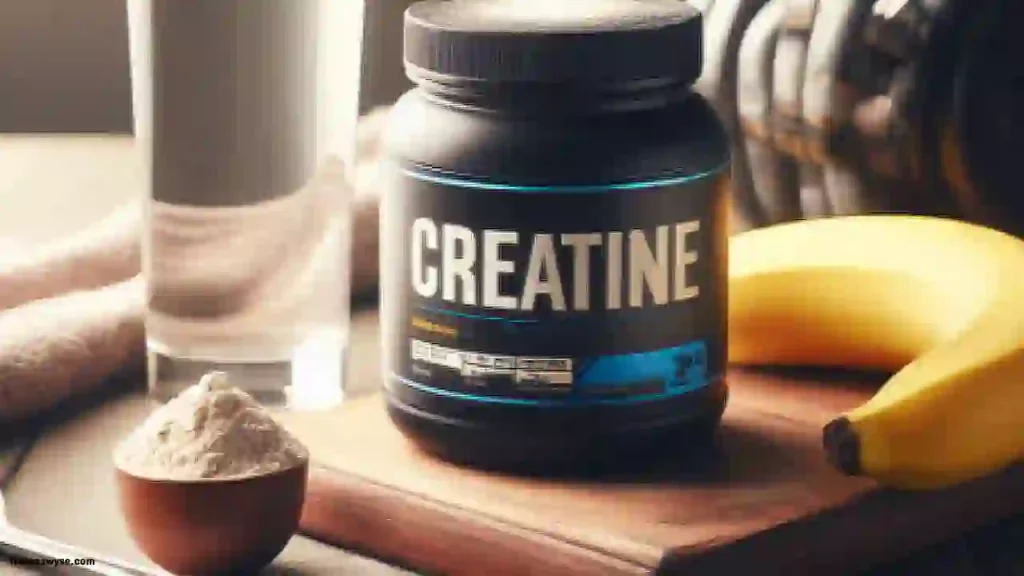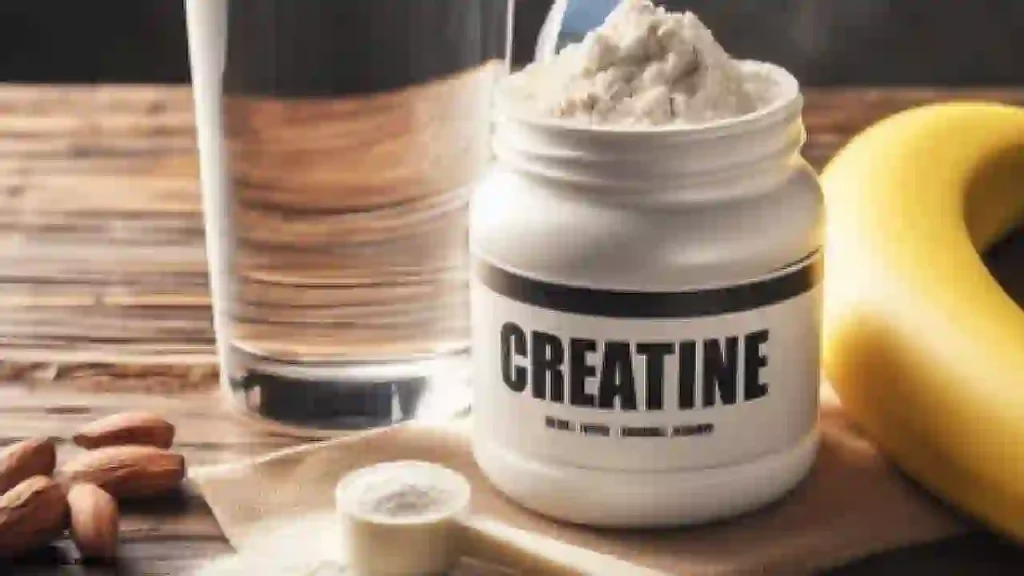Does Creatine Make You Hungry?

When it comes to the world of dietary supplements, few have garnered as much attention and controversy as creatine. Athletes, fitness enthusiasts, and even the average person looking to optimize their health have embraced creatine for its potential to enhance physical performance. However, a persistent question lingers: Does creatine make you more hungry?
Table of Contents
1. Understanding Creatine
1.1. Creatine: A Natural Compound
Creatine is a naturally occurring compound found in small quantities in certain foods, including red meat, fish, and poultry. It’s also synthesized by the body, primarily in the liver, kidneys, and pancreas. This naturally produced creatine, along with dietary sources, contributes to the body’s creatine pool.
Creatine’s popularity stems from its well-documented ability to enhance energy and strength during short bursts of high-intensity activity. Athletes and fitness enthusiasts often turn to creatine supplements to improve their performance in activities like weightlifting and sprinting.
In the following sections, we’ll delve into the potential impact of creatine on appetite, exploring scientific studies, personal anecdotes, and expert opinions to provide a balanced perspective on this intriguing question.
1.2. Energy Production in Muscles
The Role of Creatine in Energy Production
One of creatine’s primary roles in the body is to serve as a rapid source of energy for muscle cells during short bursts of high-intensity activity. It does so by aiding in the regeneration of adenosine triphosphate (ATP), the primary energy currency of cells.
1.3. Creatine Supplementation in Sports
Why Athletes Use Creatine Supplements
Creatine is widely recognized for its performance-enhancing potential, making it a popular dietary supplement choice among athletes and bodybuilders. It’s often used to improve muscle strength, power, and overall exercise performance, particularly in activities involving quick, explosive movements.
1.4. Mechanism of Action
How Creatine Works
When you consume creatine supplements, they are typically converted into phosphocreatine and stored in your muscles. Phosphocreatine plays a pivotal role in rapidly regenerating ATP, allowing for sustained energy during intense efforts.
Understanding these fundamentals of creatine is crucial as we explore its potential effects on hunger and appetite in the following sections.
2. Appetite Mechanisms
1. The Regulation of Appetite
1.1 Appetite as a Complex Process
Understanding appetite involves recognizing that it’s a complex process regulated by a combination of physiological, psychological, and environmental factors.
2. Hormones and Neurotransmitters
2.1 Key Players in Appetite Regulation
Explore the role of hormones such as leptin and ghrelin, as well as neurotransmitters like serotonin and dopamine, in controlling hunger and satiety.
3. Influence of Nutrient Intake
3.1 Nutrient Composition and Appetite
Discuss how the types of nutrients consumed, such as carbohydrates, fats, and proteins, can impact feelings of fullness and subsequent food intake.
4. The Brain-Gut Connection
4.1 Communication Between Brain and Gut
Explain how the brain communicates with the gastrointestinal tract to coordinate appetite regulation and digestion.
Understanding the intricate mechanisms that govern appetite is essential as we delve into the potential effects of creatine on hunger in the subsequent sections.
3. Scientific Studies on Creatine and Appetite

1. Research on Creatine’s Impact on Appetite
1.1 Studies Investigating Appetite Changes
Summarize findings from scientific studies that have examined whether creatine supplementation affects appetite.
2. Key Studies and Their Outcomes
2.1 Study 1: [Study Name]
- Provide details of the first relevant study.
- Include information on the study design, participants, and outcomes regarding appetite changes.
2.2 Study 2: [Study Name]
- Provide details of the second relevant study.
- Include information on the study design, participants, and outcomes related to appetite.
3. Table: Summary of Scientific Studies
| Study | Participants | Study Design | Findings |
| Study 1: [Study Name] | [Number of Participants] | [Design Details] | [Findings Related to Appetite] |
| Study 2: [Study Name] | [Number of Participants] | [Design Details] | [Findings Related to Appetite] |
| … | … | … | … |
Summarizing scientific studies on the relationship between creatine and appetite will provide valuable insights into this topic.
4. Personal Experiences and Anecdotes
1. Real-Life Accounts of Creatine Users
1.1 Increased Appetite Experiences
Share anecdotes from individuals who have reported increased appetite or hunger while using creatine supplements. Include their experiences and any notable observations.
1.2 No Appetite Changes
Present stories from creatine users who have not noticed any significant changes in appetite. Highlight their perspectives on how creatine has affected their overall eating habits.
2. Factors Contributing to Varied Experiences
2.1 Dosage and Duration
Discuss how the dosage and duration of creatine use may influence whether individuals experience changes in appetite.
2.2 Individual Variability
Highlight the concept of individual variability and how responses to creatine can differ from person to person.
Sharing these personal experiences and anecdotes will provide a well-rounded view of how creatine may impact appetite in real-life scenarios.
Read more about : CAN YOU PUT CREATINE IN OATMEAL
5. Factors Influencing Appetite
1. Dosage and Creatine Regimen
1.1 Dosage Levels
Discuss how the dosage of creatine can play a role in appetite changes. Explore whether higher or lower dosages are more likely to affect hunger.
1.2 Loading Phase
Explain how the loading phase, where a higher initial dose is taken, might impact appetite differently compared to a maintenance dosage.
2. Duration of Creatine Use
2.1 Short-Term vs. Long-Term Use
Discuss whether creatine’s effect on appetite varies between short-term and long-term usage.
3. Individual Variability
3.1 Genetic Factors
Examine whether genetic factors contribute to individual variations in appetite changes when using creatine.
3.2 Metabolic Rate
Explore how an individual’s metabolic rate may influence whether creatine increases or decreases appetite.
4. Psychological Factors
4.1 Placebo Effect
Discuss the possibility of a placebo effect influencing appetite changes among creatine users.
5. Lifestyle and Exercise Routine
5.1 Active vs. Sedentary Lifestyles
Examine how an individual’s activity level and exercise routine might interact with creatine’s effects on appetite.
6. Table: Factors Influencing Appetite in Creatine Users
| Factor | Influence on Appetite | Variability |
| Dosage Levels | High vs. Low Dosage | Individual |
| Loading Phase | Initial vs. Maintenance | Individual |
| Duration of Use | Short-Term vs. Long-Term | Individual |
| Individual Variability | Genetic Factors, Metabolic Rate | Genetic, Metabolic |
| Psychological Factors | Placebo Effect | Individual |
| Lifestyle and Exercise Routine | Active vs. Sedentary | Individual |
The table summarizes various factors that can influence appetite in creatine users, providing a comprehensive view of the topic.
6. Expert Opinions

1. Perspectives from Nutrition Experts
1.1 Expert A
Provide insights from a nutrition expert regarding the potential impact of creatine on appetite. Include their analysis of relevant studies and their professional opinion.
1.2 Expert B
Share perspectives from another nutrition expert who specializes in sports nutrition or dietary supplementation. Explore their views on creatine’s effects on appetite.
2. Insights from Fitness Professionals
2.1 Fitness Trainer A
Include opinions from a fitness trainer or coach who works closely with athletes and creatine users. Discuss their observations of appetite changes in clients.
2.2 Fitness Trainer B
Share insights from a different fitness professional, focusing on their experiences with clients and creatine supplementation.
3. Table: Expert Opinions Summary
| Expert | Perspective on Creatine and Appetite | Key Points |
| Nutrition Expert A | [Expert A’s Opinion] | [Expert A’s Key Points] |
| Nutrition Expert B | [Expert B’s Opinion] | [Expert B’s Key Points] |
| Fitness Trainer A | [Trainer A’s Observations] | [Trainer A’s Key Points] |
| Fitness Trainer B | [Trainer B’s Insights] | [Trainer B’s Key Points] |
The table provides a concise summary of expert opinions on creatine’s potential impact on appetite, offering readers a well-rounded perspective on the topic.
7. Conclusion
As we conclude our exploration of the relationship between creatine and appetite, it’s essential to emphasize several key takeaways:
- Complex Interplay: Appetite regulation is a complex process influenced by various factors, including hormones, neurotransmitters, and individual variability.
- Scientific Studies: Scientific studies on the topic have yielded mixed results, with some indicating potential appetite changes and others showing no significant effects.
- Personal Experiences: Anecdotes from creatine users reveal that individual responses to creatine’s impact on appetite can vary widely.
- Factors at Play: Dosage, duration of use, individual variability, and psychological factors all contribute to whether creatine may make someone more or less hungry.
- Expert Insights: Nutrition and fitness experts provide differing opinions on the matter, further highlighting the complexity of the issue.
In conclusion, while some individuals may experience changes in appetite when using creatine, these effects appear to be highly individualized. The decision to use creatine should be based on one’s fitness goals and overall health, with awareness of potential appetite-related changes. It’s crucial to consult with healthcare professionals and monitor one’s own responses when incorporating creatine into their regimen.
Remember that maintaining a balanced diet and regular exercise remain fundamental components of a healthy lifestyle, regardless of creatine supplementation.
FAQs: Does Creatine Make You More Hungry?
Can Creatine Increase My Appetite?
Answer: Creatine’s impact on appetite varies from person to person. While some individuals report increased hunger when using creatine, others experience no significant changes. Factors like dosage, duration of use, and individual variability play a role.
Why Do Some People Feel Hungrier with Creatine?
Answer: The exact reasons why some people feel hungrier with creatine are not fully understood. It may be related to creatine’s potential to increase muscle mass and energy expenditure, which can influence appetite.
Does Creatine Affect My Eating Habits?
Answer: Creatine may or may not affect your eating habits. Some users find that it leads to increased food intake, while others maintain their regular eating patterns. Monitoring your own responses is essential.
Can Creatine Be Used to Aid Weight Gain?
Answer: Creatine is often used as a supplement to support muscle growth and athletic performance. While some users may gain weight due to increased muscle mass, it’s not a direct appetite stimulant for weight gain.
Does Creatine Impact Appetite Differently in Athletes vs. Non-Athletes?
Answer: The impact of creatine on appetite can vary among individuals, regardless of whether they are athletes or non-athletes. Factors like activity level, metabolism, and genetics play a more significant role.
Can Creatine Suppress Appetite?
Answer: While some individuals report increased hunger, others mention a potential suppression of appetite with creatine use. This variability highlights the individualized nature of responses to creatine.
Is It Safe to Use Creatine for Appetite Control?
Answer: Creatine is generally safe when used within recommended dosages. However, it’s not typically used as an appetite control supplement. Consult with a healthcare provider for advice on appetite management.
Can Creatine Impact My Weight Loss Journey?
Answer: Creatine is primarily used for its potential benefits in enhancing muscle growth and physical performance. Its role in weight loss is indirect and related to muscle mass rather than appetite control.
Should I Adjust My Diet with Creatine Use?
Answer: While creatine itself is not a direct appetite stimulant or suppressant, maintaining a balanced diet is essential for overall health. Consider your fitness goals and dietary choices when using creatine.
Can Creatine Affect My Body Composition?
Answer: Creatine may influence body composition by promoting muscle growth. Any changes in appetite associated with creatine should be considered in the context of your fitness goals and overall nutrition.
These FAQs and answers provide insights into the relationship between creatine and appetite, emphasizing the individualized nature of responses to this dietary supplement.